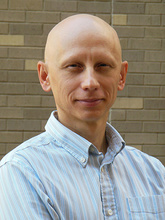
The company Lego conducted a survey of kids in the U.S., U.K., and China and asked them the age-old question, “What do you want to be when you grow up.” Some of the responses were surprising. While more than 50 percent of the children in China wanted to be astronauts, only about 10 percent of the children in the U.S. and U.K. chose this profession. Instead, many more (30 percent) of the kids in these two countries wanted to be YouTubers.
For sociologists, this is fascinating. Why are most kids in the U.S. dreaming about being YouTubers? What does this mean for our society and for the future workforce? Should parents and educators be worried about the effect that the “influencer culture” has on our kids?
As I pondered these questions, I realized that sociologists are fortunate to be asking (and attempting to answer) such questions for a living. These big questions about society are like catnip for sociologists: we can spend hours thinking and talking about them. At least, this is what I assume about “my fellow sociologists.”
But is this true? I decided to ask two of my colleagues and two of our graduate students why they chose a career in sociology. More specifically, I asked them three questions: 1) What attracted you initially to sociology? 2) What do you enjoy the most about being a sociologist? 3) If you were to select one image that illustrates why sociology matters, what would that be? Below are their responses.
New cultural experiences led to new research questions
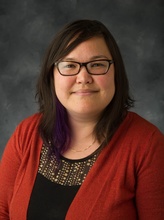
Professor Jennifer Haylett
I was initially drawn to sociology because it mapped on to the issues that already occupied a lot of my thinking, but that I didn’t have the words for or the tools to understand in any constructive way. When I entered college, I was very unsure of what I was doing but outside of school I was already passionate about social justice-related issues. In particular, my family had recently moved to Idaho and into an environment that was overwhelmingly homogenous in terms of race, class, and gender norms. My mother was an immigrant from Japan and I watched as she navigated a lot of racism in our new location. Watching this happen left me with a lot of questions about our society that I found answers to when I started taking sociology courses. The first sociology course I took was a social problems class and I was immediately hooked! The professor and course material explained dynamics in society that I saw all around me, and I appreciated the rigorous methods that sociologists used to address these topics. So, initially, sociology was attractive to me because of its relevance in helping me better understand the world I found myself in.
I enjoy the relevance of sociology for making sense of everyday life. I enjoy seeing students stumble upon sociology and then lighting up when they see that it can give them a stronger understanding of their own life. I am also excited by sociological research that successfully debunks commonly held misunderstandings that widely circulate in our society. For example, the idea that “free markets” exist outside of human creation. Sociological research can broaden our thinking and help us understand how structures/ideologies constrain our freedom or expand our opportunities.
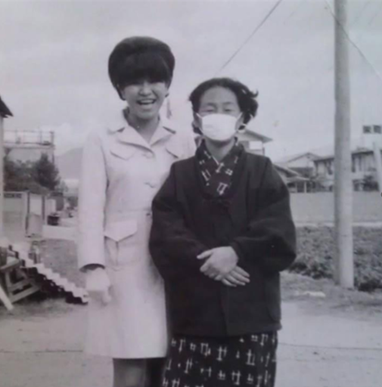
This is a personal picture, but I guess it’s appropriate given the personal reasons that led me to sociology. The picture is of my mother and her mother. My mother is dressed up to go to a Beatles concert in Japan. She would eventually immigrate to the U.S. at age 30. I think this picture captures the different cultural worlds she and her mother came to occupy. Furthermore, watching my mom navigate the U.S. as an immigrant was very formative for me and contributed to my interest in how society and our cultural milieus shape our life experiences and identities.
Trying to understand the complexity of human behavior
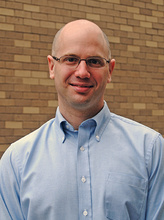
Professor Steven Hitlin
I went to college wanting to understand people, but my psychology courses seemed more interested in rats and offered strange archetypes of people that I didn’t recognize. I took a sociology course called Self and Society, and that seemed much closer to how I understood the world. So, I majored in sociology, alongside philosophy, because I’m a little abstract in my interests.
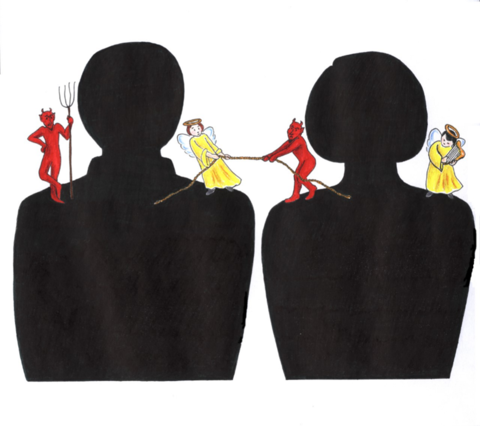
The philosophy that I’ve always been interested in involves what people ‘should’ do, but it struck me early on that different people have different versions of ‘should’ that they are willing to fight for, and that seemed intriguing. Sociology gives me some tools to study this, to try to capture the aspects of the world that shape people to have such strongly held moral beliefs. I have no idea what people should do, but the beliefs about what they should do have some patterns, can be overridden in certain situations, and help us define who we are, even as those standards can be inconsistent. Sociology begins with the idea that people reflect their backgrounds and surroundings, and seems a more accurate – if complicated – model for understanding human behavior. We like people who seem to have the same moral standards that we do, even if particular situations lead us to ignore, revise, or override those standards.
Challenging common assumptions
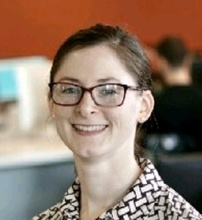
Hillary Douglas – Graduate Student
Initially, I had no idea what sociology was. I had been working at an agency helping refugees find employment and the longer I worked there, the more questions I had about which policies were beneficial, worked best, and which were potentially downright harmful for the people I was working with. One day my spouse, who minored in sociology as an undergraduate, recommended, "why don't you go back to grad school and study sociology? You can study just about anything with sociology." I started learning more about what sociology is, and I found that he was right: sociology provides an excellent foundation for studying a variety of topics. You really can study just about anything with a sociological approach.
There are two things that are most exciting for me about sociology: asking questions and the potential to address social problems. Asking questions is what brought me to sociology and being able to ask questions and think of ways to find the answers to my questions within a scientific approach is what keeps me engaged and excited to be a sociologist. I also love being able to help my peers and students think about their questions and how they can find the answers to their questions. Additionally, Sociology is a field which often challenges the assumptions we have about how the world works and, in doing so, it offers us new ways of thinking about solutions to social problems. The social problems we see in the world can be extremely discouraging. Sociology allows us to think of ways to address these problems more holistically by thinking about social processes, structures, and rules—and that hope of change motivates me.
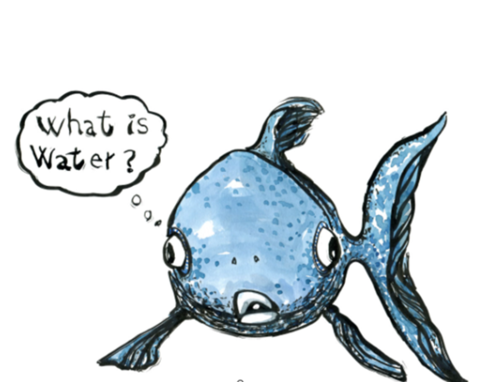
Society is all around us and, because of this ubiquitousness, we can take it and its rules, structures, and impacts for granted, much like the fish below who asks, "What's water?" all the while swimming in it and breathing through it (picture by Frits Ahlefeldt). Sociology allows us to move beyond taking social phenomena for granted and to ask: what is really happening here?
Addressing society’s paradoxes

Patrick Hardy -Graduate Student
My original undergraduate plan was to major in business. I needed to take some social science classes for my general education credits when, through a serendipitous turn of events, I ended up enrolling in a Race & Ethnicity sociology course taught by Dr. Jacob Rugh. It was the first time I had been exposed to structural explanations of stratification and the course unlocked a new way of looking at the world through a sociological lens. The following semester, I took a Race & Immigration course by the same teacher which coincided with the Trump administration's draconian family separation policy. I felt that the sociological theories we discussed offered much more convincing explanations of current events than I had encountered in other disciplines. For my senior capstone project, I interviewed a number of Brazilian immigrants, both documented and undocumented, which confirmed a lot of the things I studied in class.
I'm excited about the ability of sociology to explain paradoxes. For example, the sharp increase in immigration enforcement in the 1990s and early 2000s had the curious effect of quadrupling the number of undocumented immigrants. While many assumed that pouring enormous resources and time into enforcement would curb migration, it actually disrupted the circular flow of migrants and produced a caging effect, which remains to this day. I am also excited about the potential for sociology to impact public policy, such as how Dr. Seamster’s work on student debt contributed to the “mainstreaming” of debt forgiveness in public discourse and in part led to the student debt relief announcement. I hope that my research on the collateral consequences of detention and deportation can also inform public policy.
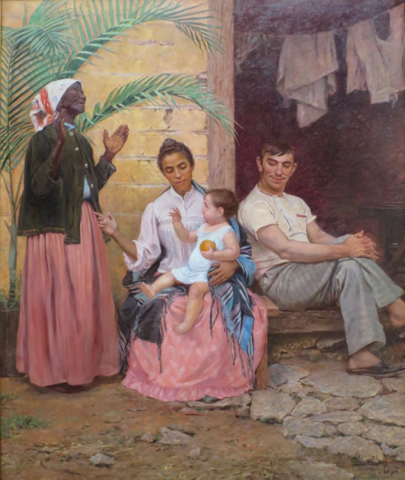
The picture I would choose is A Redenção de Cam by Modesto Bronco. The painting depicts a dark-skinned Afro-Brazilian grandmother celebrating the light skin of her grandchild. The reason sociology matters to this picture to me is twofold. It demonstrates the dark side of science, which provides intellectual cover for programs of racial violence and oppression, as well as the opportunity for the opposite—a liberatory science which empowers people to imagine and pursue a world free from white supremacy and oppression.